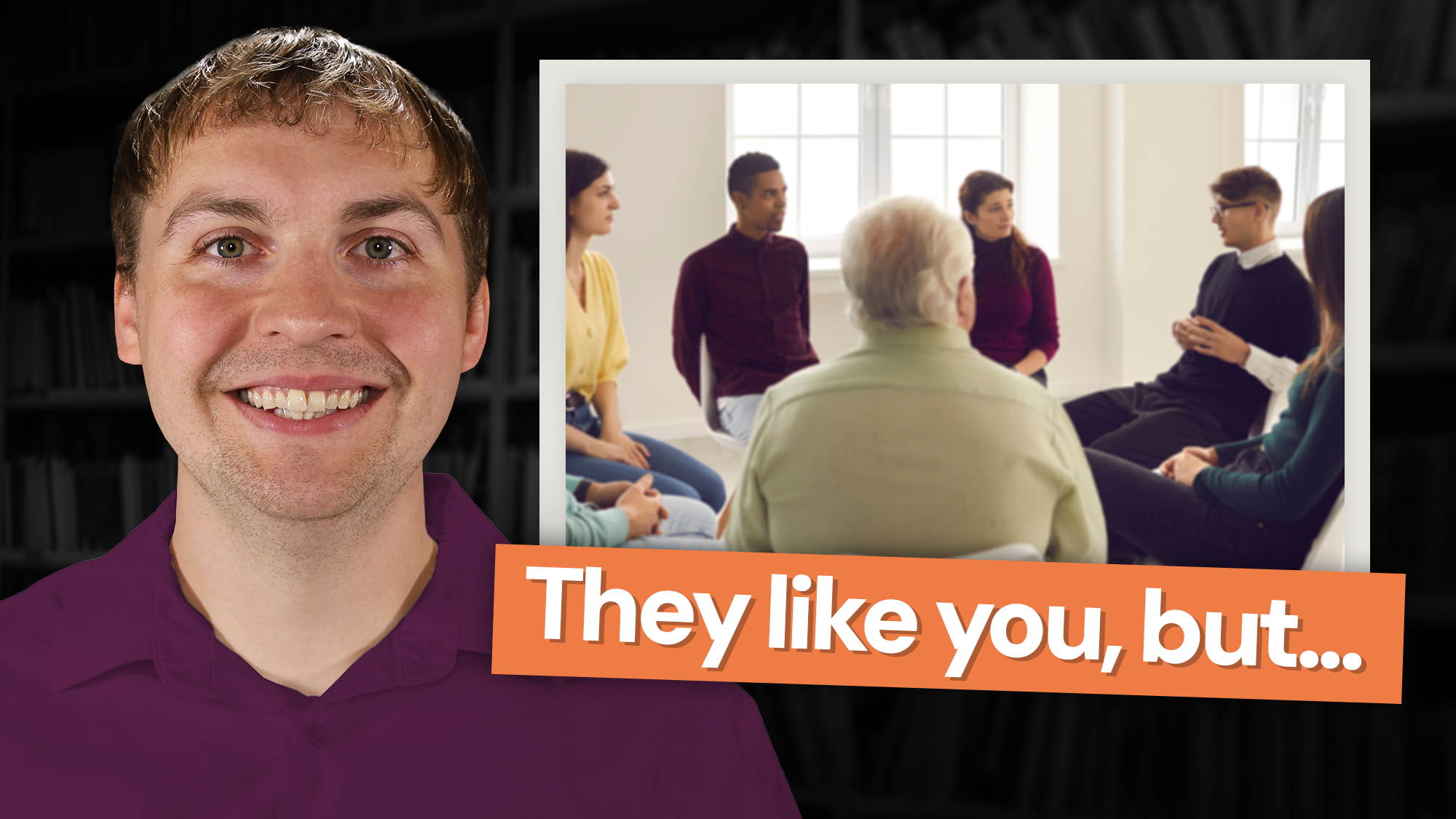
In the category of Group Work on the National Counselor Examination (NCE), the Counselor Preparation Comprehensive Examination (CPCE), or another counseling exam, you may benefit from knowing about different roles that can exist within a group therapy setting.
Here we explore positive and negative roles that can happen in a group. From the Joker, to the Doormat, the Supporter, or the Gatekeeper, you’ll get an understanding of various roles.
Group roles can be classified as positive or negative. With the roles in positive categories, these help the group progress and function optimally in some way. However, with the roles in the negative categories, these hinder or otherwise hold the group back.
Related to the positive roles, these can be put into one of two categories: task roles or maintenance roles. As far as the negative roles, these can also be placed in two categories: self-centered roles or unproductive roles. All four of these categories are discussed below, along with specific groups roles that are in each category.
The roles in this category will often help the group with defining goals and facilitate problem-solving.
Task Leader – With the Task Leader, they will often to have a high-status position within the group and an elevated level of maturity. They might contribute good problem-solving skills to the group, have leadership skills that are helpful, or be able to provide useful information for the group.
Expeditor – For someone that is in the Expeditor role, they will help keep the group on track and monitor progress. They might do this by keeping an agenda or assessing the progress of goals for example. Those in this role will tend to have a good sense of when the group might be straying off-topic or getting stuck, and they will often have skills to help be able to keep things moving.
Information Provider – Unlike other roles, the Information Provider role will often be shared by most (or all) of the group members. This is because all members will hopefully be contributing to discussions, providing opinions, or presenting different ideas. Ideally, it is best for all group members to be in this role.
Gatekeeper – When someone is in the Gatekeeper role, they will usually help to manage conversation in the group. Furthermore, they will seek to have all members contributing to the discussion in a meaningful way. This means they will often help keep the conversation moving when someone is dominating the group, and they may prompt those who tend to be quiet.
Another of the positive category of roles, those in these roles tend to alter, maintain, or otherwise strengthen the group. They may help with finding compromises, being supportive, or helping to establish standards within the group.
Harmonizer – People in the Harmonizer role often help to manage conflict in the group, and can help with smoothing things over. They will have skills in being impartial (or at least appearing to be impartial). Those in this role do well at monitoring for any possible areas that conflict could arise, and then act to help manage it before it escalates.
Interpreter – For those in the Interpreter role, they will often take the role of finding common ground in the group. These people can help others see that differences are not something that need to be feared. Instead, they help to provider a perspective that allows others to see the positives that come from these differences.
Supporter – When someone is in the Supporter role, they will often provide encouragement to other group members and help to provide emotional support. While they might do this during a group meeting, but this role tends to happen more on a one-to-one basis.
Tension Releaser – The Tension Releaser helps to manage the frustration level of the group. They tend to be sensitive to the emotions of the group, and will usually have a good sense of humor that helps in this role. The Tension Releaser can help others feel at ease, and they will be skilled at using humor that is directed at the group as a whole rather than singling one person out.
The first of the negative categories of roles, the Self-Centered roles are those that tend to bring the attention to the person as an individual, rather than keeping it on the group’s topic.
Monopolizer – When someone is in the role of the Monopolizer, they will overtake the conversation of the group. They prevent group members from contributing equally because of their own contributions, and with how they dominate the conversation. With monopolizers, they will often not be on-task, and will provide information that is not relevant to the group.
Self-Confessor – For people in the Self-Confessor role, they may come to groups with drama and can try to use the group as therapy. They might overshare, and will bring up their own personal problems. It should be noted that, while groups do usually require people to share and provide personal information about their problems, people in this role will take these to the extreme.
Insecure Compliment Seeker – When on is in the Insecure Compliment Seeker role, they will seek compliments from the group that are not related to behavior or tasks as part of the group. Instead, they want to be reassured or complimented at a more personal level. For example, they will want to be told how smart they are, that they are attractive, or otherwise seek validation of this sort.
Joker – While the Tension Releaser is funny and jokes, they do so in a manner that seeks to release tension in the group and help the group function in a healthier way. However, for those in the Joker role, they often make jokes out of their own insecurity. They tend to distract from the content of the group, instead drawing attention to themselves.
The second of the negative categories are the unproductive roles. These roles tend to make group progress more difficult or prevent progress for the group.
Blocker – In the Blocker role, the person may act to block in ways that are intentional or unintentional. They might want the group to have more information before they move on or make a decision, for example. Or, they may miss meetings can then stop or slow the progress of the group.
Social Loafer – When one is in the Social Loafer role, they only engage with the group when they are forced to. The larger a group is, the more likely a Social Loafer will emerge in the group. These members may wait for others to do tasks, and may even quit attending a group.
Aggressor – If someone is in the Aggressor role, this person can exhibit behaviors that range in intensity. One the less intense end of the spectrum, they may be quite assertive. On the more intense end, they might engage in bullying behaviors. The Aggressor may appear when they feel threatened, especially if something hits on their insecurity. This person may put down others, engage in competitions that are not necessary, or share opinions in an outspoken manner.
Doormat – In the Doormat role, these group members are overly submissive. They may discuss being inadequate or quickly give in when they feel challenged. Those in this role might also give up when they feel they can’t do something, or go to lengths to avoid conflict with others in the group.



If you or someone you know are needing immediate mental health assistance, please call or text 988, contact a local emergency telephone number, or go to the nearest emergency room.
By interacting with this website and channel, this does not constitute a therapist/client relationship. This content is intended for the purposes of entertainment and mental health education.
View additional disclaimers and notices on our Disclaimers page.